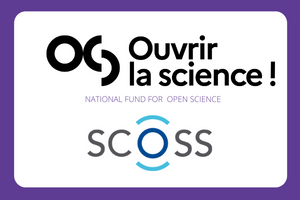Alternative Publishing Platforms
Are you confused by all the ‘alternative’ scholarly publishing platforms that have emerged over recent years? A Knowledge Exchange working group has examined this issue and has produced a framework document that should guide the work of the coming months.
Today there seem to be so many ways to communicate or disseminate research. There are not only peer-reviewed academic articles, monographs, conference proceedings, or theses. Now there are also preprint repositories, data journals, specialist data and code repositories, trial registries, scholarly blogs and websites, many forms of peer review, micropublications… These different forms of publication all have different aims, such as seeking to remove the barriers, constraints and costs imposed by legacy academic publishing companies, to reduce questionable practices, or to do research work more deeply accessible and reusable.
In order to help guide conversations about the merits and downsides of these different ‘alternative’ publishing platforms, a new Task and Finish Group worked on a recently published Knowledge Exchange (KE) scoping paper. As a next step, we hope that we can develop a taxonomy of these various platforms – platforms that follow different paths (e.g. in equitable publishing models, quality control, technical features, open source, iterative publishing workflows, etc.) compared to the legacy publishers. Such platforms represent a move away from the traditional journal as an organising principle and might differ from traditional scholarly journals in a number of ways, including publication process, governance, and underlying infrastructure. They can be regarded as examples of really innovative, open access scholarly communication or as effective ‘threat infrastructures’ to traditional journal publishers. Knowing the directions in which these platforms are driving innovation, and their different aims, might allow us insight into what can be a confusing landscape.
Throughout the process we would welcome feedback on our scoping paper (https://doi.org/10.21428/996e2e37.3ebdc864) and the developing taxonomy and therefore invite all stakeholders (including researchers, institutions, funders and – non-profit – publishers) to comment and provide feedback.
A French translation of the text is available here.






